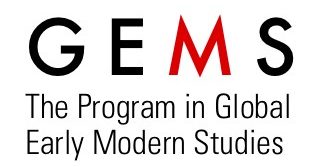Due May 28 | CPF – RSA – The Renaissance Society of America, New Orleans, 22-24 March 2018
Call for Papers: RSA – The Renaissance Society of America, New Orleans, 22-24 March 2018
Petrarch Commentary and Exegesis in Renaissance Italy, c. 1350-c.1650
The AHRC-funded project Petrarch Commentary and Exegesis in Renaissance Italy, c. 1350-c. 1650, which brings together a team of researchers from the Universities of Warwick, Leeds and Manchester, welcomes individual papers to be presented at the 64th Annual Meeting of the Renaissance Society of America (New Orleans, 22-24 March 2018). The project aims to explore exegetical production on Petrarch’s vernacular verse (both the Rerum Vulgarium Fragmenta and the Triumphi) in early modern Italy. Our three panels aim to investigate exegesis on Petrarch in both the full-scale commentary and the academic lecture (‘lezioni’), as well as considering the exegetical value of paratextual and other ancillary features found in these traditions. An outline of some suggested topics is provided for each panel below, but we would naturally welcome other relevant suggestions focused upon Italian exegesis of Petrarch in the period:
Panel 1: Commentaries: papers are welcomed on such topics as: the major print and manuscript commentaries/commentators (e.g. Marsili, Barzizza, Filelfo, Illicino, Silvano da Venafro, Brucioli, Fausto da Longiano, Gesualdo, Delminio, Vellutello, Daniello, Castelvetro); the exegetical value of paratextual elements (e.g. lives, prefaces, etc.) within such commentaries; explorations of the modes of exegesis and interpretative strategies developed in commentaries; explorations of the connections between Petrarch commentary and other exegetical traditions (e.g. Dante commentary, classical commentary, etc.).
Panel 2: Lectures: papers are welcomed on such topics as: the production of individual readers of Petrarch and/or on the character of Petrarchan exegesis in specific Academies; explorations of the modes of exegesis and interpretative strategies found in academic lectures; consideration of the relative attention and emphasis paid to different poems or sections of Petrarch’s vernacular poetry in lectures; investigation of the contexts in which lectures are given (primarily Academies but also courts).
Panel 3: Tools for the reader in Petrarch editions: papers are welcomed that deal with the exegetical functions of phenomena and materials accompanying Petrarch editions. Topics might include such elements as: rimari, lists of variants and discussion of them, use of elements of the accessus ad auctores tradition, illustrations, indexes, etc.
Colleagues who wish to be considered for these panels are kindly invited to send a title, an abstract of no more than 150 words as well as a one-page CV to [email protected] no later than 28 May 2017.




Comments are closed, but trackbacks and pingbacks are open.